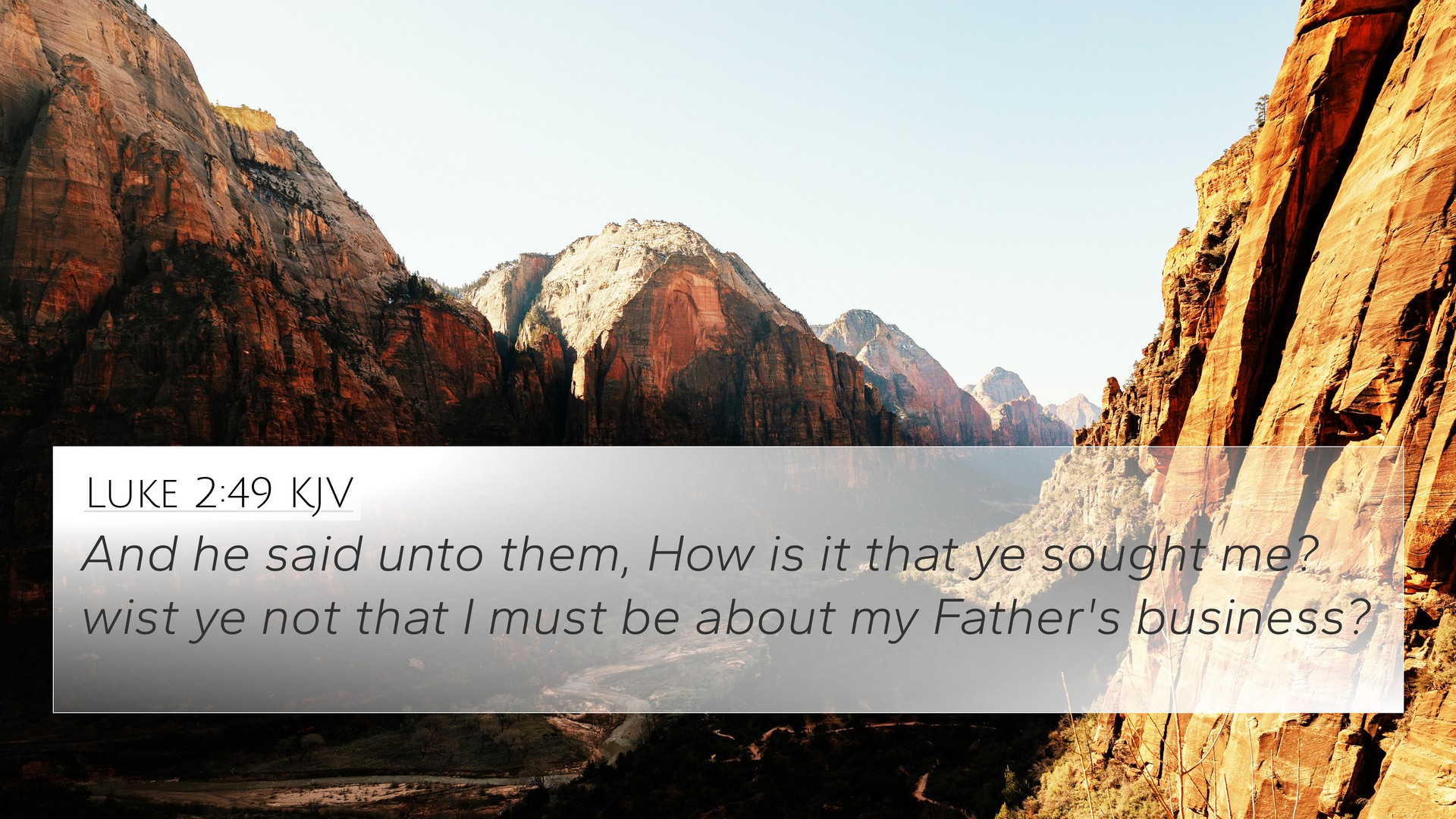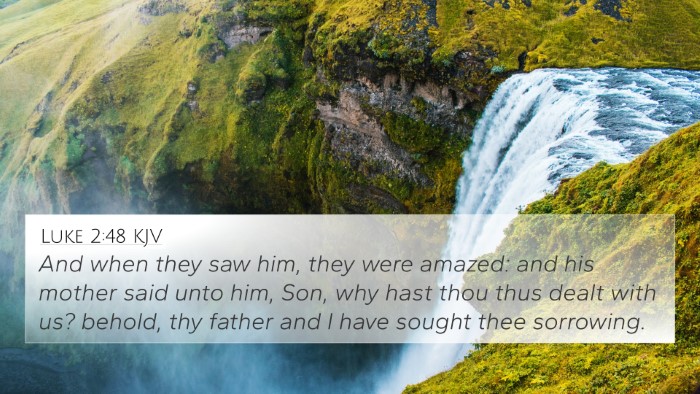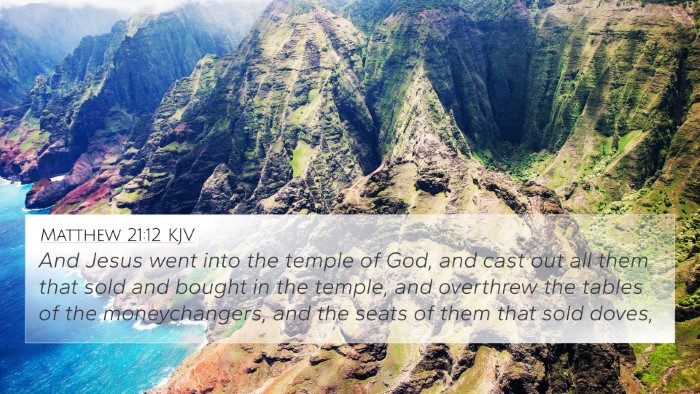Understanding Luke 2:49
Luke 2:49 is a profound verse where Jesus, as a young boy, expresses his awareness of his divine mission. When Mary and Joseph find him in the temple, he says, "Did you not know that I must be about my Father's business?" This verse highlights the early recognition of Jesus' dual nature as both divine and human.
Analytical Insights
This verse illustrates several key theological concepts:
- The Divine Awareness of Jesus: From a young age, Jesus was aware of his unique relationship with God the Father, which indicates his divine nature.
- Divine Mission: The phrase "my Father's business" implies a specific purpose that Jesus was destined to fulfill, laying the groundwork for understanding his later ministry.
- Parental Guidance: Jesus’ response also highlights the importance of parental support in understanding one's calling.
Commentary Summaries
Matthew Henry's Commentary: Matthew Henry emphasizes that Jesus’ preoccupation with spiritual matters even at a young age teaches us the importance of prioritizing our relationship with God. He notes that Jesus was not neglecting his earthly family but was rather fulfilling his heavenly responsibilities.
Albert Barnes' Commentary: Albert Barnes focuses on the term "must," which denotes a sense of divine necessity in Jesus' mission. He points out that Jesus was essentially saying it was essential for him to be engaged in God’s work, showing his obedience to the divine plan.
Adam Clarke's Commentary: Adam Clarke observes that this verse marks the first recorded words of Jesus, symbolizing the commencement of his ministry. Clarke highlights the significance of Jesus being in the temple, a symbol of his connection to God and his future role in salvation history.
Related Bible Verses
- John 4:34: "My food is to do the will of Him who sent Me, and to finish His work." - Emphasizes Jesus’ commitment to his divine mission.
- Luke 19:10: "For the Son of Man came to seek and to save the lost." - Affirms the purpose of Jesus’ coming.
- Matthew 3:16-17: The baptism of Jesus where God confirms His sonship.
- John 10:30: "I and My Father are one." - Illustrates the unity and relationship between Jesus and God.
- Philippians 2:5-7: Paul’s exhortation about Jesus’ humility and servanthood.
- Hebrews 5:8: "Though He was a Son, yet He learned obedience by the things which He suffered." - The human experience of Jesus in relation to obedience.
- Isaiah 9:6: Prophetic reference to Jesus being called “Mighty God.”
- John 1:14: "And the Word became flesh and dwelt among us." - The incarnation of Jesus.
- Matthew 7:21: Discusses doing the will of the Father, reinforcing the theme of obedience.
- Revelation 3:20: Represents Jesus’ desire for relationship and communion with humanity.
Cross-Referencing & Thematic Connections
Luke 2:49 engages in rich inter-Biblical dialogue. By cross-referencing this verse with other scriptures, we find connections that enhance our understanding:
- Identifying the connections between Old and New Testament, such as whispers of Christ’s future recognition in the gospels and prophecies.
- This verse mirrors themes found in Psalms, particularly the call to seek God and prioritize His works.
- The parallels between Jesus' childhood and prophetic statements in Isaiah connect his youth with his divine mission.
Tools for Bible Cross-Referencing
For those delving deeper into Bible verse explanations, various tools can aid in cross-referencing. Consider employing:
- Bible concordances to locate related themes and scriptures.
- Bible cross-reference guides that provide a systematic approach to connecting verses.
- Cross-reference Bible study methods to engage with scripture contextually.
Conclusion
Understanding Luke 2:49 sheds light on the early awareness of Christ regarding his mission and relationship with the Father. This verse invites us to prioritize our own spiritual endeavors while recognizing the importance of Christ’s divine purpose. By embracing the thematic Bible verse connections, we enrich our faith and understanding of the scriptures.












